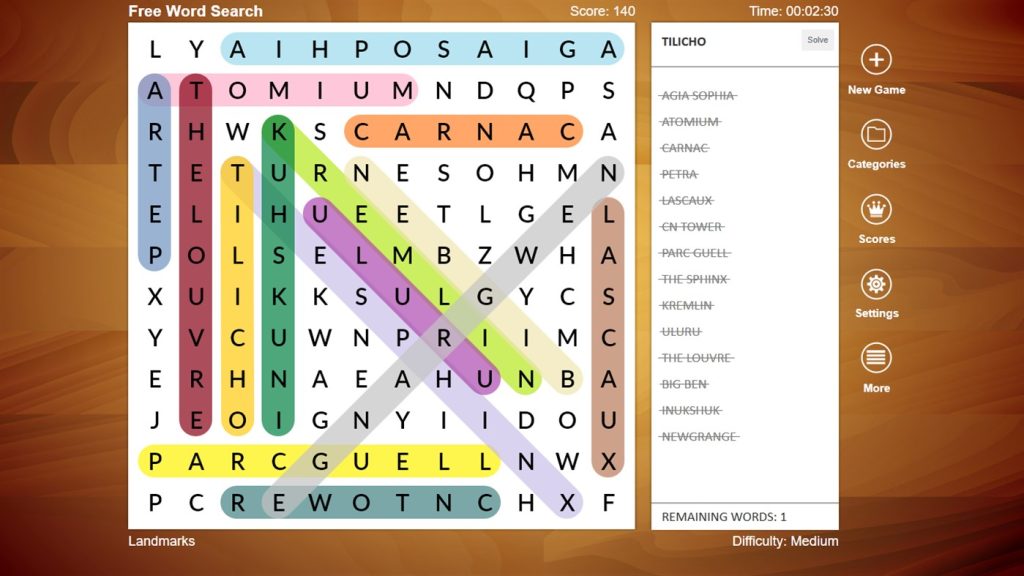Introduction
Online Puzzle Games: In the digital age, online games have become a significant part of children’s entertainment. Among the myriad options available, online puzzle games stand out as a particularly beneficial and enjoyable choice. These games not only provide hours of fun but also play a crucial role in developing various cognitive and problem-solving skills in young minds. This blog delves into the world of online puzzle games for kids, exploring their benefits, popular types, and tips for choosing the best games for your child.
The Educational Value Of Puzzle Games
Puzzle games have been recognized for their educational value for centuries. Traditional puzzles, such as jigsaw puzzles, crossword puzzles, and brain teasers, have always been a favorite among children and parents alike. With the advent of technology, these puzzles have transitioned into the digital realm, offering a more interactive and engaging experience.
One of the most significant advantages of online puzzle games is their ability to enhance cognitive development. These games require children to think critically, analyze situations, and come up with solutions, which in turn improves their problem-solving skills. Moreover, puzzle games help in developing spatial awareness, memory, and concentration, as children must remember patterns, shapes, and sequences to progress through the levels.
Developing Critical Thinking And Problem-Solving Skills

Critical thinking is a vital skill that children need to develop from a young age. It involves analyzing information, evaluating evidence, and making reasoned judgments. Online puzzle games are an excellent tool for fostering these skills in children. For instance, logic puzzles require children to think several steps ahead, considering the consequences of each move before making a decision.
Problem-solving skills are closely linked to critical thinking. In many puzzle games, children are presented with challenges that they must overcome to progress to the next level. These challenges often require creative thinking, as there may be multiple ways to solve a problem. By experimenting with different approaches, children learn to think outside the box and develop a flexible mindset.
Enhancing Memory And Concentration
Memory and concentration are two essential cognitive abilities that online puzzle games help to strengthen. Many puzzles require children to remember specific patterns, sequences, or positions of objects to solve them. For example, in a matching game, children must remember the location of various items to find pairs. This repeated exercise of recalling information enhances their memory skills over time.
Concentration is equally important in puzzle games. To solve a puzzle, children must focus on the task at hand, blocking out distractions and maintaining their attention on the game. This ability to concentrate can translate into better performance in academic and other real-life situations.
Promoting Patience And Perseverance
Online puzzle games can also teach children the value of patience and perseverance. Puzzles are often designed to be challenging, requiring time and effort to solve. Children may not succeed on their first attempt, but with persistence, they learn that with enough practice and determination, they can overcome obstacles. This lesson is invaluable in many aspects of life, from academics to personal relationships.
Types Of Online Puzzle Games For Kids
The variety of online puzzle games available for kids is vast, catering to different age groups and interests. Here are some of the most popular types:
Jigsaw Puzzles: Digital jigsaw puzzles are a classic choice. They range in complexity from simple puzzles with a few pieces to more challenging ones with hundreds of pieces. These puzzles help children develop spatial awareness, hand-eye coordination, and fine motor skills.
Matching Games: Matching games, where children pair similar items, are excellent for improving memory and visual recognition. These games often feature themes like animals, fruits, or shapes, making them educational as well.
Logic Puzzles: Logic puzzles, such as Sudoku or grid-based challenges, require children to use reasoning and deduction skills. These games are great for developing critical thinking and problem-solving abilities.
Word Puzzles: Word puzzles, including crosswords, word searches, and anagrams, help children expand their vocabulary and spelling skills. These games are particularly beneficial for language development.
Maze Games: Maze puzzles challenge children to find the correct path from start to finish. They require careful planning and spatial awareness, as children must anticipate dead ends and plan their route accordingly.
Pattern Recognition Games: These games involve identifying and completing patterns, whether they be in shapes, colors, or numbers. Pattern recognition is a foundational math skill, and these games provide a fun way to practice it.
Escape Room Games: Virtual escape rooms have become increasingly popular. These games require children to solve a series of puzzles to “escape” a digital room. They combine various types of puzzles and require teamwork, making them a fun activity for groups.
The Role Of Creativity In Puzzle Games

While puzzle games are often associated with logic and problem-solving, they can also be a powerful tool for fostering creativity. Some puzzles encourage children to think creatively, especially when there are multiple solutions to a problem. For example, in a game where children must build structures using different shapes, there is no single “correct” solution. Instead, children can experiment with different configurations, fostering their creative thinking.
Moreover, many online puzzle games incorporate artistic elements, such as designing patterns, coloring images, or creating digital mosaics. These activities allow children to express their creativity while still engaging in problem-solving tasks. By combining logic and creativity, puzzle games provide a well-rounded cognitive workout.
The Social Aspect Of Online Puzzle Games
While puzzle games are often thought of as solitary activities, many online versions include social elements that allow children to play with friends or family members. Multiplayer puzzle games encourage collaboration, communication, and teamwork. For instance, in cooperative puzzle games, players must work together to solve challenges, each contributing their unique skills and ideas.
Social interactions in online puzzle games can also take the form of friendly competition. Leaderboards, timed challenges, and tournaments add an element of excitement and motivation, as children strive to improve their skills and achieve high scores. This competitive aspect can be particularly engaging for older children, encouraging them to practice and improve their abilities.
Tips For Choosing The Best Online Puzzle Games For Your Child
With the vast array of online puzzle games available, choosing the right one for your child can be daunting. Here are some tips to help you make the best choice:
Age Appropriateness: Ensure that the game is suitable for your child’s age and skill level. Some games may be too complex for younger children, leading to frustration, while others may be too simple and fail to challenge them.
Educational Content: Look for games that offer educational benefits, such as improving math skills, expanding vocabulary, or teaching problem-solving strategies. Many puzzle games are designed with educational goals in mind, making them both fun and informative.
Engaging Themes: Choose games that feature themes your child is interested in. Whether it’s animals, space, or fairy tales, an engaging theme can make the game more enjoyable and encourage your child to play and learn.
Parental Controls: Many online games include parental control options that allow you to monitor and limit your child’s screen time, in-game purchases, and access to certain content. These controls are essential for ensuring a safe and balanced gaming experience.
Multiplayer Options: Consider games that offer multiplayer options, especially if you have more than one child or if your child enjoys playing with friends. Multiplayer puzzle games can be a great way to encourage social interaction and teamwork.
Free Vs. Paid Games: While many high-quality puzzle games are available for free, some may offer additional features, levels, or content through in-app purchases or subscriptions. Evaluate whether the additional content is worth the cost and whether the free version is sufficient for your child’s needs.
User Reviews And Ratings: Before downloading a game, check user reviews and ratings to see what other parents and children think about it. This feedback can provide valuable insights into the game’s quality, educational value, and potential issues.

Conclusion
Online puzzle games for kids are more than just a source of entertainment. They are powerful tools for cognitive development, fostering critical thinking, problem-solving, memory, concentration, creativity, and social interaction. By carefully selecting age-appropriate and educational games, parents can ensure that their children reap the maximum benefits from their gaming experiences.
As with any form of digital entertainment, moderation is key. By setting limits on screen time and encouraging a balanced mix of activities, parents can help their children develop a healthy relationship with technology. Whether it’s solving a challenging logic puzzle, completing a jigsaw, or collaborating with friends in a virtual escape room, online puzzle games offer a world of learning opportunities that can enhance your child’s development in fun and engaging ways.











